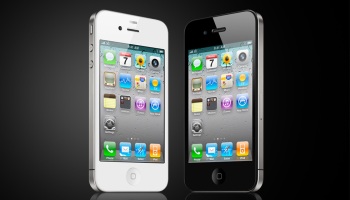600,000 Apple iPhone Sales Crash US Systems

AT&T and Apple were overwhelmed by “unexpected” orders for the new Apple iPhone 4, despite previous demand for iPhones and iPads
More than half a million sales of Apple’s new iPhone 4 overloaded ordering systems at Apple and AT&T – which still has an exclusive contract for the iPhone in the US.
Apple posted an apology on its Website for what it described as “many order and approval system malfunctions,” and the shipping date has been pushed back to July 14. The UK is also experiencing excessive demand, as operators gear up to selling the phone on 24 June, and SIM-free pre-orders on Apple’s site sold out in less than 24 hours.
“Unexpected” demand for new iPhone
 Despite the success of all previous iPhones, and the iPad, Apple and AT&T described the iPhone 4 demand as “unexpected”. Last June year, Apple sold one million iPhone 3GS devices in threee days, and this year the company is expected to sell 10 million iPad tablets by the end of 2010, having sold two million in the first month.
Despite the success of all previous iPhones, and the iPad, Apple and AT&T described the iPhone 4 demand as “unexpected”. Last June year, Apple sold one million iPhone 3GS devices in threee days, and this year the company is expected to sell 10 million iPad tablets by the end of 2010, having sold two million in the first month.
When the new phone was offered for pre-order on 15 June, it sold 600,000 units, effectively crashing both AT&T and Apple’s ordering systems. AT&T staff were reported to be writing down customer details on paper, when store computers melted down, and visitors to both AT&T’s and Apple’s sites got error messages.
“It was the largest number of preorders Apple has ever taken in a single day and was far higher than we anticipated, resulting in many order and approval system malfunctions,” the Apple statement said. “Many customers were turned away or abandoned the process in frustration. We apologize to everyone who encountered difficulties.”
It was “the busiest online sales day in AT&T history,” an AT&T spokesman told CNN, adding that customers who preordered that afternoon or later would receive their device after June 25. Apple also indicated delays for the iPhone 4, with a note on its site suggesting that those preordering now would need to wait until July 14 for their smartphone to ship.
In addition to a larger battery capable of 7 hours of talk time and a thinner body, the device includes a front-facing camera for video conferencing and a built-in three-axis gyroscope. Its iOS4 operating system, previously dubbed “iPhone OS 4,” includes new features such as multitasking.
Among the negatives, the phone increases Apple’s hold on the consumer by adopting an unusual micro-SIM format, which means users have to resort to physical surgery on other SIMs to use them in the device.
During his keynote presentation June 7 at Apple’s 2010 Worldwide Developers Conference, Apple CEO Steve Jobs suggested that the iPhone 4 represented “the biggest leap since the original iPhone,” adding: “This is beyond doubt one of the most precise, beautiful things we’ve ever done.”
The iPhone 4 represents Apple’s hopes of staying ahead in the consumer smartphone market, where it finds itself confronting a rising threat from the growing family of Google Android devices. Analysts had predicted that Apple would cut the price of iPhones, as it faced a “flood” of Android devices, but so far the company does not seem to have cut prices significantly, even in the UK, where a wider roster of operators includes Tesco.